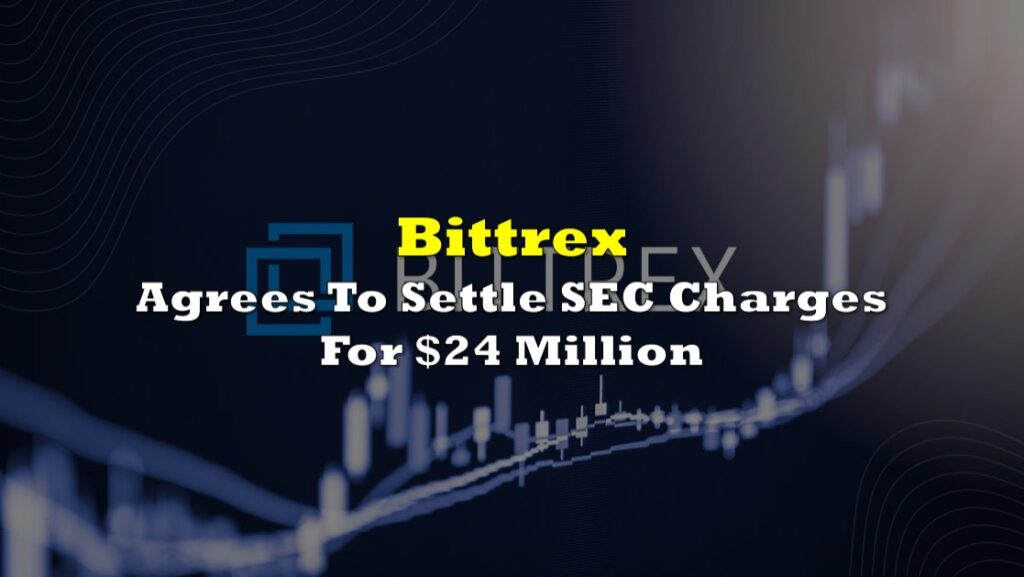The U.S. Securities and Exchange Commission (SEC) has taken legal action against John A. DeSalvo, a former lieutenant of the New Jersey Department of Corrections. The SEC alleges that DeSalvo orchestrated an elaborate cryptocurrency scam that targeted police officers and emergency responders.
On Wednesday, the SEC exposed a cryptocurrency fraud, filing charges against John A. DeSalvo for his alleged involvement in a scheme that singled out law enforcement professionals and first responders. Between November 2021 and May 2022, DeSalvo reportedly amassed an impressive $623,388 from 222 investors, leveraging his self-promoted Blazar token.
Today we charged former NJ State Corrections Officer John A. DeSalvo in a crypto fraud scheme involving the unregistered offering of the Blazar Token. His scheme targeted law enforcement personnel.https://t.co/27k9EhCJFG
— U.S. Securities and Exchange Commission (@SECGov) August 23, 2023
The Blazar token, touted as a revolutionary solution, was presented by DeSalvo as a replacement for conventional state pension systems catering to police officers, firefighters, and paramedics. DeSalvo promised significant returns surpassing those of traditional assets, marketing it as an unprecedented opportunity. He claimed that the digital asset is a convenience “akin to pensions, 401(k), and Individual Retirement Accounts (IRA) contributions.”
However, beneath the veneer of promise, DeSalvo’s representations were deceptive. Despite DeSalvo’s assertion that the Blazar token held SEC securitization, the token had not received the regulatory nod. Another glaring inconsistency emerged when DeSalvo initially assured insiders a “lock-up” period, only to betray this promise by personally selling 41 billion Blazar tokens during the PancakeSwap launch in May 2022, amounting to $51,000.
“Rather than producing any returns or revolutionary technology, he instead misappropriated and misused investor money,” said Gurbir S. Grewal, Director of the SEC’s Division of Enforcement. “What’s particularly offensive about this case is that DeSalvo used his status as a former corrections officer to gain the trust of fellow law enforcement personnel, a number of whom invested their savings with him.”
While DeSalvo profited from his actions, investors faced dire consequences. As the value of the Blazar token plummeted by over 99.9% within days of DeSalvo’s sale on PancakeSwap, investors found themselves unable to divest their holdings.
The SEC’s investigation revealed the extent of DeSalvo’s impact, stating, “DeSalvo’s extensive sales drove the Blazar Token’s value downward, exhausting PancakeSwap’s liquidity. It culminated in the token’s rapid downfall and significant losses for investors.”
To address these fraudulent activities, the SEC is taking stringent measures. They are seeking a permanent injunction to prevent DeSalvo from engaging in future security offerings. Moreover, the SEC aims to impose civil penalties and recoup the gains obtained through his illicit actions.
The action against DeSalvo continues the SEC’s intensifying crackdown on cryptocurrency. Currently, the regulatory agency is in a legal battle against Coinbase and Binance, claiming the two giant trading firms are offering unregistered securities.
Earlier this month, the SEC took legal action against Richard Heart, also known as Richard Schueler, and three entities under his control – HEX, PulseChain, and PulseX – for allegedly conducting unregistered offerings of crypto asset securities that amassed over $1 billion in crypto assets from investors.
Information for this briefing was found via Cryptomode, The Crypto Times, and the sources mentioned. The author has no securities or affiliations related to this organization. Not a recommendation to buy or sell. Always do additional research and consult a professional before purchasing a security. The author holds no licenses.









